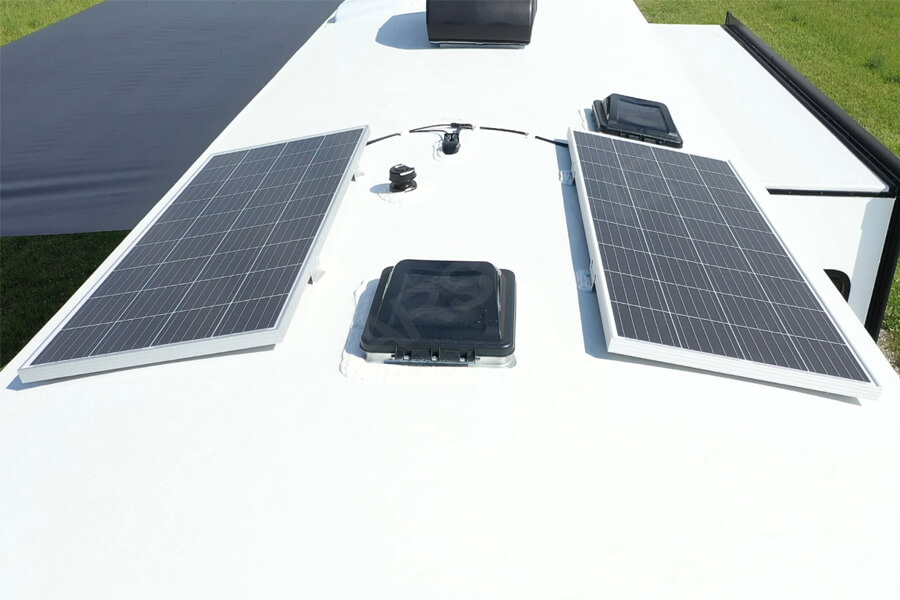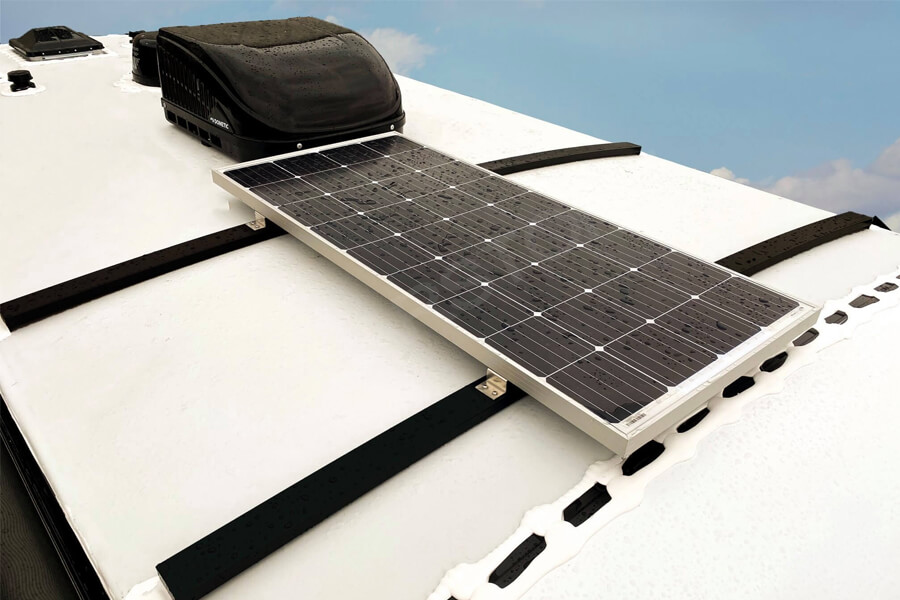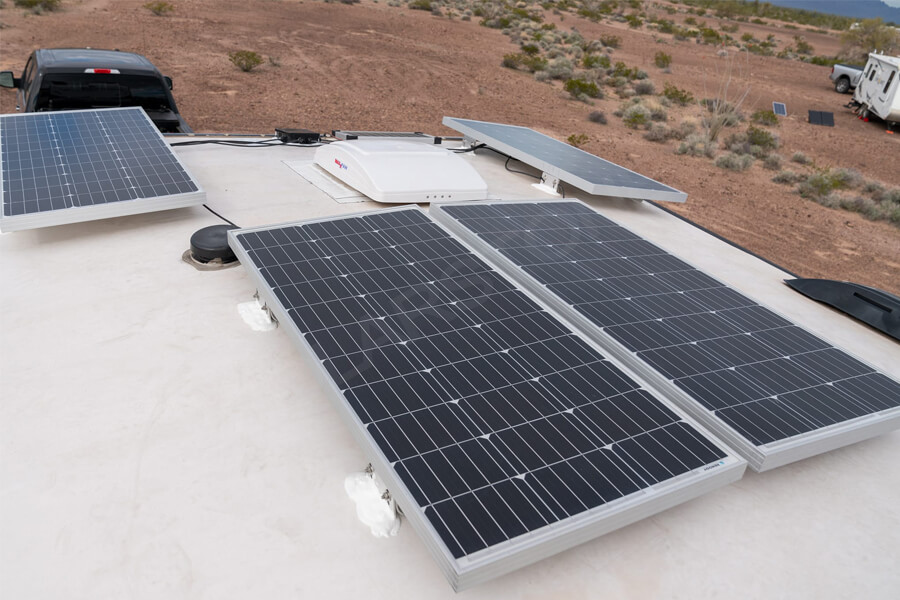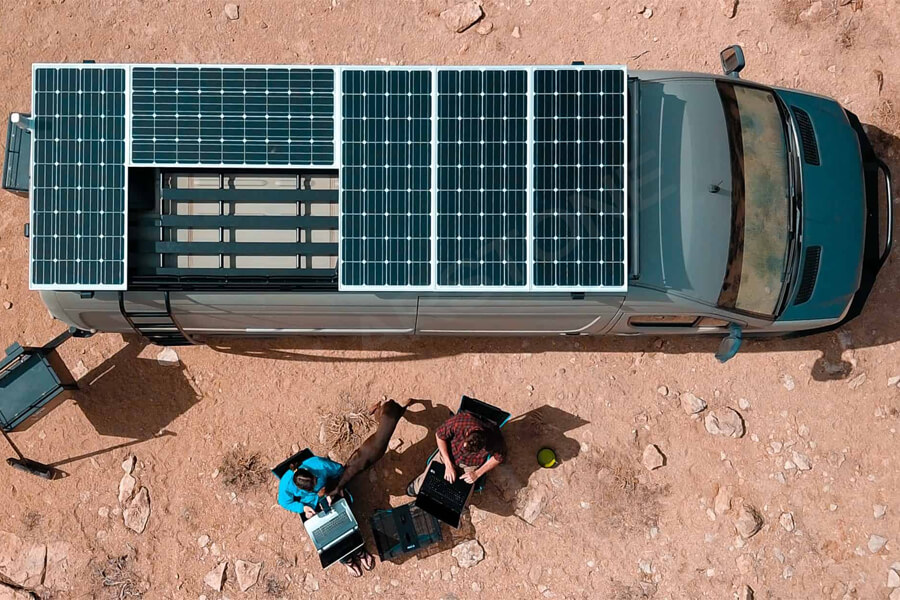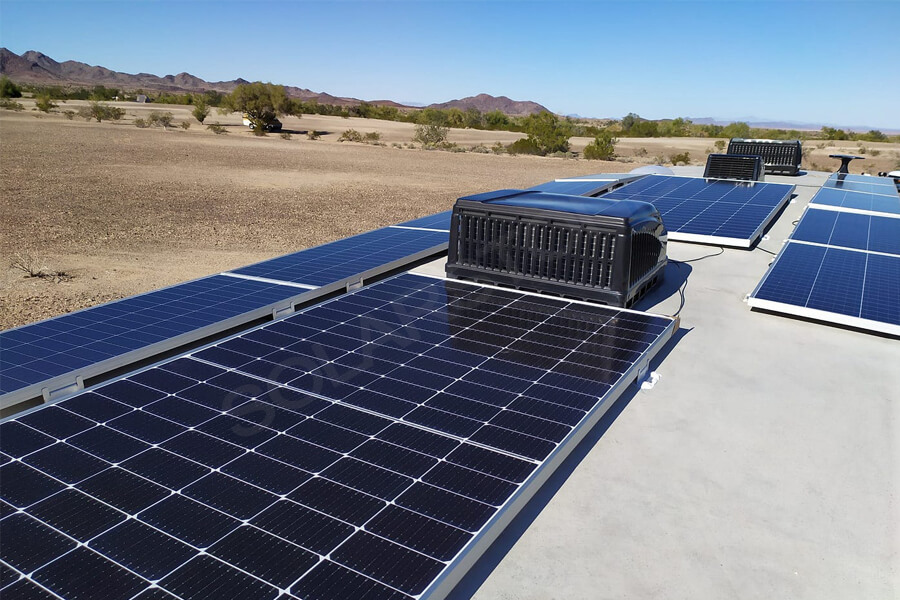RV travel is a popular way of traveling nowadays. With the development and progress of solar technology, the energy demand during travel can be combined with solar panels to reduce power anxiety on the road.
What is an RV solar panel?
RVs are always outdoors and often exposed to solar radiation. To take advantage of this, RV owners achieve energy independence by installing solar panels on the roof or carrying portable solar panels for the RV. RV solar panels can be fixed to the roof of the vehicle through fixed shelves designed for them.
Due to the continuous reception of solar radiation on the roof, RV solar panels can generate a large amount of electricity to power DC and AC loads on the road or during camping. Having a RV solar panel eliminates the need to stop at the campsite and use an external power outlet to charge the battery or an external diesel generator. Solar panels can generate electricity all day long as they are exposed to sunlight, as long as there are no objects blocking the modules.
The advantages of RV solar panels
RV solar panels can become loyal allies on the road, bringing many benefits.
Simple installation or no installation required, you can install and secure the RV solar panels on the roof of the RV, but this is not always necessary. You can choose to equip your RV with portable solar panels, which are placed around the vehicle facing the sun.
Another option is to stick the flexible solar panels of the RV onto the roof, which does not require drilling holes on the roof. RV solar panels will accompany you wherever you go and continuously generate electricity on the road, making them a loyal ally for your adventure. The only thing you need to pay attention to is not to park the car in a cool place, as your panel will not generate electricity or reduce performance.
Independent of the power grid and generator, conventional RVs park at campsites to charge deep cycle batteries. Alternatively, they can use an external generator, but the generator generates a lot of noise and constantly requires fuel. RV solar panels are the best way to solve these problems, as they only require sunlight to generate electricity and can operate for 20 to 25 years.
Comparison of solar panel materials for RVs
Monocrystalline silicon includes RV solar panels with the highest power. These are the best solar panels for RVs when you need a lot of energy to live comfortably or want to charge the battery faster.
Polycrystalline silicon can also generate a large amount of power while still saving some funds. This technology has lower efficiency but also lower cost.
Amorphous silicon is a very unique technology that can manufacture RV solar panels that are adaptable to curved roofs, with much lower prices per watt and better performance at high temperatures.
The disadvantages of this technology are low efficiency and low rated power. Amorphous silicon can be used to manufacture portable solar panels for RVs that can even be completely curled, as well as flexible solar panels for rooftop installation.


